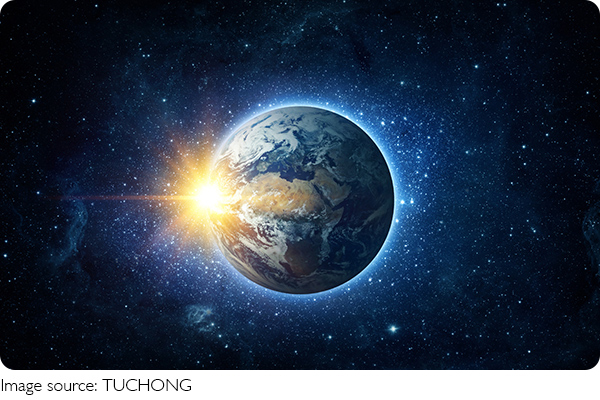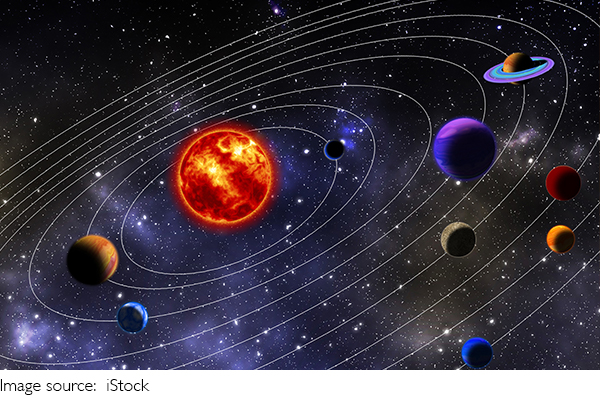If Earth Stopped Spinning

Imagine waking up one morning and the Earth just… stops. No more sunrise. No more rotation. At first, you might not notice—unless you were flying through the air at over 1,000 mph.
This isn't just a dramatic thought experiment. It's a way to explore how deeply our daily lives depend on a spinning planet. From the shape of the oceans to the rhythm of time itself, Earth's rotation is silently holding our world together. So what if it suddenly came to a stop?
Let's walk through the science—and the consequences.
1. Instant Catastrophe: Inertia Doesn't Forgive
The Earth spins at about 1,037 mph (1,670 km/h) at the equator. That motion keeps everything in gentle balance. But if Earth came to a sudden stop?
Everything not anchored to bedrock would keep moving.
That includes oceans, buildings, people, even the atmosphere. Picture this:
• Ocean water would surge inland, causing massive tsunamis—especially around the equator, where rotational speed is highest.
• Winds would blast across continents at supersonic speeds, flattening forests and cities.
• Aircraft would be flung off-course, satellites might fall, and anything in motion would turn into a projectile.
Basically, it'd be like slamming the brakes on a spinning carnival ride—but the ride is 8,000 miles wide.
2. A World with a 6-Month Day
Let's say instead of stopping suddenly, Earth gradually slowed to a halt. Things wouldn't explode instantly, but life would still be turned upside down—literally.
Without rotation, Earth would still orbit the Sun once every year. But now, each side of the planet would face the Sun for about six months at a time. That means:
• Half the planet would bake in constant sunlight, possibly reaching temperatures too hot for crops or water to survive.
• The other half would freeze in darkness, turning into a months-long winter night.
This kind of cycle would drastically disrupt ecosystems. Plants wouldn't photosynthesize normally. Animals that rely on circadian rhythms (like birds or insects) would lose their behavioral cues. And humans? We'd need entirely new ways to measure time, farm food, and even sleep.
3. Oceans Would Migrate Toward the Poles
Earth's rotation causes a bulge at the equator. Without that spin, gravity would redistribute Earth's water, pulling it toward the poles where gravity would now be slightly stronger.
This would mean:
• Coastal areas at the equator would dry out dramatically.
• Sea levels would rise dramatically near the poles, flooding major cities in northern latitudes.
• Equatorial oceans might shrink into deserts, while new inland seas could form elsewhere.
The planet's geography—and climate—would be unrecognizably reshaped.
4. No Magnetic Field, No Protection
Earth's spin helps power the dynamo effect in its molten iron core, which creates our magnetic field. This field protects us from harmful solar radiation and cosmic particles.
If the spin stopped, the magnetic field could collapse or weaken severely. This would expose Earth to:
• More solar radiation, increasing cancer risk and damaging electronics
• Stronger auroras, but not for fun reasons
• Possible atmospheric erosion over time, like what happened to Mars
In short, Earth would become a much more dangerous place to live.
5. Gravity Would Feel… Different
Right now, Earth's rotation slightly counteracts gravity at the equator. It's not something we feel, but you actually weigh less near the equator than at the poles.
If Earth stopped spinning:
• Everyone would weigh about 0.3% more (just a few ounces for most people)
• The shape of the Earth would gradually shift from an oblate sphere (flattened at the poles) to a more perfect sphere
While that might not matter day to day, it would mess with satellites, sea level calculations, and even GPS accuracy.
Could Earth Actually Stop?
Not anytime soon. There's no natural process that could instantly halt Earth's spin. The planet is gradually slowing down due to tidal friction caused by the Moon, but it's only by about 1.7 milliseconds per century.
In a few billion years, Earth might become tidally locked to the Moon or even the Sun—always showing the same face. But that's far beyond any human timescale.

It's fun (and slightly terrifying) to imagine Earth hitting the cosmic brakes—but in doing so, we realize just how fragile our balance really is. Rotation gives us time, weather, seasons, and a place to stand.
Now, here's a question for you: if we had to survive on a planet that didn't spin, how would you redesign society—housing, food, work? Daylight that lasts six months changes a lot. Let's imagine that world together.
-
 Space's Ultimate DistortersBlack holes are cosmic sculptors—bending space, distorting time, and pulling even light into their mysterious dance.
Space's Ultimate DistortersBlack holes are cosmic sculptors—bending space, distorting time, and pulling even light into their mysterious dance. -
 Living on MarsSure, Mars Sounds Cool—But Between Radiation and Isolation, It’s a Brutal Place to Live
Living on MarsSure, Mars Sounds Cool—But Between Radiation and Isolation, It’s a Brutal Place to Live -
 Earth’s Quickest Day Ever!Can You Feel It? Earth’s Quickest Day Yet Sparks Global Scientific Concern
Earth’s Quickest Day Ever!Can You Feel It? Earth’s Quickest Day Yet Sparks Global Scientific Concern